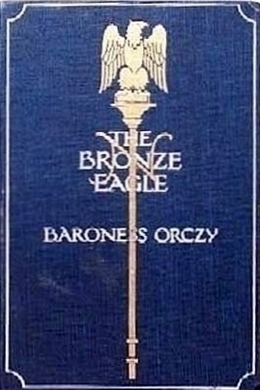
-
EPUB 414 KB
-
Kindle 498 KB
-
Support epubBooks by making a small $2.99 PayPal donation purchase.
Description
The intrigues of the royalist and those of the adepts of Napoleon Bonaparte. Story set during the French Revolution. The perfect calm of an early spring dawn lies over headland and sea hardly a ripple stirs the blue cheek of the bay. The softness of departing night lies upon the bosom of the Mediterranean like the dew upon the heart of a flower.
451 pages with a reading time of ~7 hours (112914 words), and first published in 1915. This DRM-Free edition published by epubBooks, 2014.
Community Reviews
There are currently no other reviews for this book.
Excerpt
Where the broad highway between Grenoble and Gap parts company from the turbulent Drac, and after crossing the ravine of Vaulx skirts the plateau of La Motte with its magnificent panorama of forests and mountain peaks, a narrow bridle path strikes off at a sharp angle on the left and in wayward curves continues its length through the woods upwards to the hamlet of Vaulx and the shrine of Notre Dame.
Far away to the west the valley of the Drac lies encircled by the pine-covered slopes of the Lans range, whilst towering some seven thousand and more feet up the snow-clad crest of Grande Moucherolle glistens like a sea of myriads of rose-coloured diamonds under the kiss of the morning sun.
There was more than a hint of snow in the sharp, stinging air this afternoon, even down in the valley, and now the keen wind from the northeast whipped up the faces of the two riders as they turned their horses at a sharp trot up the bridle path.
Though it was not long since the sun had first peeped out above the forests of Pelvoux, the riders looked as if they had already a long journey to their credit; their horses were covered with sweat and sprinkled with lather, and they themselves were plentifully bespattered with mud, for the road in the valley was soft after the thaw. But despite probable fatigue, both sat their horse with that ease and unconscious grace which marks the man accustomed to hard and constant riding, though–to the experienced eye–there would appear a vast difference in the style and manner in which each horseman handled his mount.
One of them had the rigid precision of bearing which denotes military training: he was young and slight of build, with unruly dark hair fluttering round the temples from beneath his white sugar-loaf hat, and escaping the trammels of the neatly-tied black silk bow at the nape of the neck; he held himself very erect and rode his horse on the curb, the reins gathered tightly in one gloved hand, and that hand held closely and almost immovably against his chest.
The other sat more carelessly–though in no way more loosely–in his saddle: he gave his horse more freedom, with a chain-snaffle and reins hanging lightly between his fingers. He was obviously taller and probably older than his companion, broader of shoulder and fairer of skin; you might imagine him riding this same powerful mount across a sweep of open country, but his friend you would naturally picture to yourself in uniform on the parade ground.
The riders soon left the valley of the Drac behind them; on ahead the path became very rocky, winding its way beside a riotous little mountain stream, whilst higher up still, peeping through the intervening trees, the white-washed cottages of the tiny hamlet glimmered with dazzling clearness in the frosty atmosphere. At a sharp bend of the road, which effectually revealed the foremost of these cottages, distant less than two kilometres now, the younger of the two men drew rein suddenly, and lifting his hat with outstretched arm high above his head, he gave a long sigh which ended in a kind of exultant call of joy.
“There is Notre Dame de Vaulx,” he cried at the top of his voice, and hat still in hand he pointed to the distant hamlet. “There’s the spot where–before the sun darts its midday rays upon us–I shall hear great and glorious and authentic news of him from a man who has seen him as lately as forty-eight hours ago, who has touched his hand, heard the sound of his voice, seen the look of confidence and of hope in his eyes. Oh!” he went on speaking with extraordinary volubility, “it is all too good to be true! Since yesterday I have felt like a man in a dream!–I haven’t lived, I have scarcely breathed, I . . .”
The other man broke in upon his ravings with a good-humoured growl.
“You have certainly behaved like an escaped lunatic since early this morning, my good de Marmont,” he said drily. “Don’t you think that–as we shall have to mix again with our fellow-men presently–you might try to behave with some semblance of reasonableness.”
But de Marmont only laughed. He was so excited that his lips trembled all the time, his hand shook and his eyes glowed just as if some inward fire was burning deep down in his soul.
“No! I can’t,” he retorted. “I want to shout and to sing and to cry ‘Vive l’Empereur’ till those frowning mountains over there echo with my shouts–and I’ll have none of your English stiffness and reserve and curbing of enthusiasm to-day. I am a lunatic if you will–an escaped lunatic–if to be mad with joy be a proof of insanity. Clyffurde, my dear friend,” he added more soberly, “I am honestly sorry for you to-day.”
“Thank you,” commented his companion drily. “May I ask how I have deserved this genuine sympathy?”
